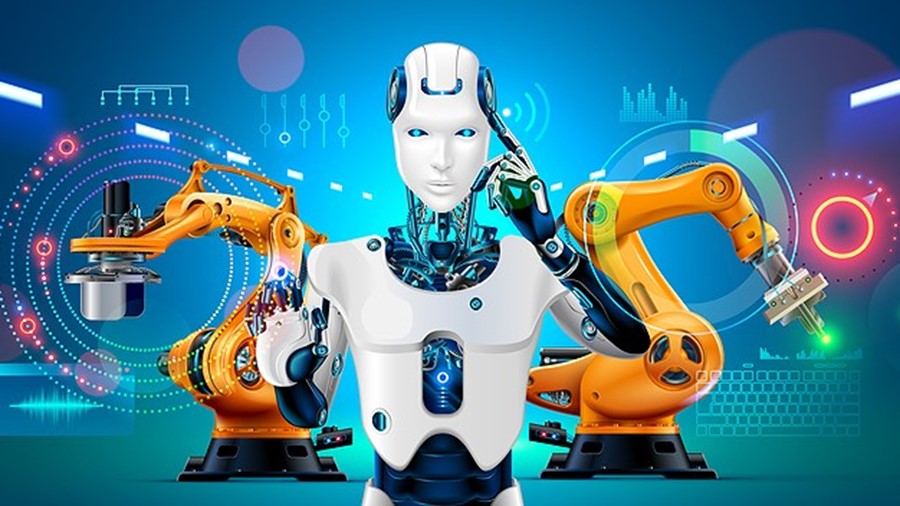From factory robots to cancer detection, personalized learning experiences to military reconnaissance, intelligent systems are transforming modern society. They power collaboration, strengthen security, and optimize decision making. But they also present myriad challenges that businesses need to address.
Human-Like Intelligence Comes with Risk
Intelligent systems combine artificial intelligence (AI) and automation to perform tasks that require human-like intelligence. These systems can learn from data, reason about problems, and make decisions either autonomously or with human guidance. They can also interact with humans using natural language and by recognizing voice and gestures.
For example, using data analytics, machine learning, and computer vision, intelligent systems determine customer preferences and create highly customized products. In fact, organizations in most industries can benefit from intelligent systems to streamline processes and improve decision making.
But AI comes with risk, as well. In 2023, self-driving car manufacturer Cruise learned that lesson the hard way when one of its cars caught a pedestrian underneath its tires. The pedestrian sustained significant injuries, and Cruise had to remove 950 of its vehicles from operation.
Business leaders need to educate themselves about both the possibilities and the pitfalls of these systems. And they must leverage them strategically to balance advantages with risks.
Power to Transform
Intelligent systems enable organizations to streamline processes and quickly adapt to changing environments. Consequently, they help to improve customer satisfaction by providing personalized responses and recommendations. And because they allow sales teams to optimize pricing and cross-selling strategies, they can increase revenue and profitability.
In manufacturing, intelligent systems reduce cost and risk by automating repetitive tasks or tasks that require immense precision. They can also reduce downtime and improve maintenance operations by continually monitoring equipment for patterns and anomalies that indicate potential issues.

Additionally, intelligent systems deliver significant benefits for healthcare. For example, using AI-enabled image reconstruction, radiologists can reduce radiation dose while improving image quality in CT scans. AI has also been shown to improve diagnostic accuracy and speed by detecting areas of interest that manual inspections sometimes miss.
By rapidly analyzing large amounts of data from hundreds of sources, from customer input to the IoT, intelligent systems enhance decision making. This can result in better products and services, strengthen cyber security, and promote collaboration.
Unique Challenges and Ethical Issues
However, as with any emerging technology, these potential benefits also come with risks and the potential for misuse. Some of the challenges critical to intelligent systems include:
- Data quality – Intelligent systems depend on large amounts of data. However, when that data is inaccurate or incomplete, it can lead to unintended bias or faulty recommendations.
- Data privacy – While ensuring data quality and accessibility, organizations must also protect sensitive data and personal information from unauthorized access or misuse.
- Human-machine interaction – By design, intelligent systems interact with humans in various ways. For instance, they recognize natural language, voice, gestures, and even emotions. However, the system may not always correctly understand human intent or context. Both humans and intelligent systems need to be trained to interact effectively.
- Ethical and social implications – Intelligent systems create new opportunities. But they may also affect jobs and skills. And they can be weaponized by unscrupulous individuals. Therefore, the businesses that employ them must take care to align their use with human values, norms, and laws.

Responsible Approach Required When Implementing Intelligent Systems
To address these challenges and others, business leaders should carefully build a responsible strategy when using intelligent systems. To begin with, organizations need to develop a clear vision and roadmap to indicate how intelligent systems will support business goals and values. They should also establish an ethical review board to evaluate ethical implications.
Next, companies must assess data readiness and quality. Intelligent systems need large amounts of high-quality data to train and validate. This will require robust information governance to ensure clean, consistent, and relevant data. And it will involve evaluating and improving data collection and management processes.
The right tools and platforms will prove critical to successful implementation. Look for technologies and frameworks that provide desired features but also align with company resources and skills. The new tools will need to integrate smoothly with existing systems and workflows.
Intelligent Systems Experts
Finally, successful implementation depends as much on skills as it does on tools. Invest in talent development and education, training employees to use intelligent systems effectively. Training must also cover the ethical and social aspects of AI-powered systems.
Harnessing the power of intelligent systems requires a strategic vision, a data-driven mindset, and a culture of growth. The technology consultants at eMazzanti will help you choose and implement the tools and strategies best suited to your organization’s goals and environment.













